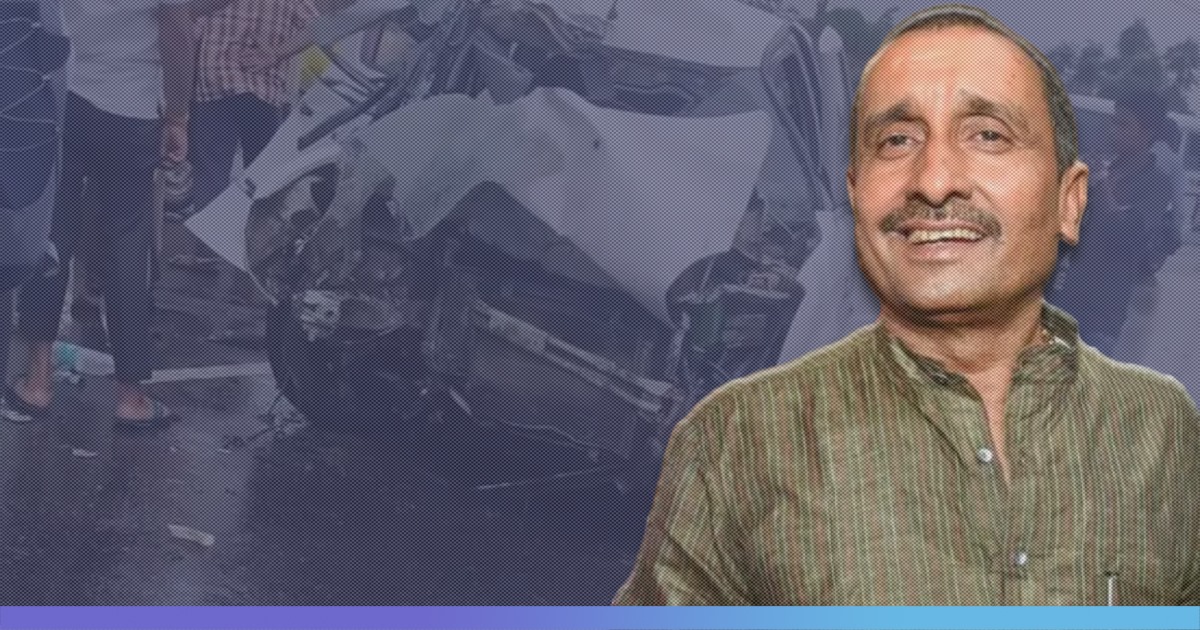
From Jessica Lal To Unnao, How Power-Hungry Netas Evaded Law
5 Aug 2019 11:21 AM GMT
Editor : Sumanti Sen
Sumanti Sen is an English Literature graduate who believes "there's just one kind of folks. Folks.".
The Unnao case is currently the most discussed case. The minor girl who was raped in June 2017 by BJP MLA Kuldeep Sengar, his brother and others, recently met with what was termed as an “accident”, leaving her in a critical condition.
People involved in the case are mysteriously getting wiped out. The survivor’s father died, the witnesses died, the accident claimed the lives of two of her aunts and critically injured her and her lawyer. In fact, the truck that hit the survivor’s car had its number plate smeared with black paint.
Those sitting before their TV screens can clearly see how suspicious the events are. However, those in positions of power can only identify the events as accidents and coincidence.
The Unnao case mirrors what is exactly wrong with society and how it misuses and manhandles power and authority.
Misuse Of Power
Cleaning up the political system and fighting corruption has never been an easy task. It has always been simple for powerful people to get away with crimes. By the time they are finally convicted, the damage becomes irreparable.
Here is the long, shocking list of charges against politician Kameshwar Baitha, who joined the BJP in 2014: 16 counts of murder, 25 of attempted murder, six of assault with a dangerous weapon, three of extortion… and more.
Baitha first won his seat in 2009. He says he is a Robin Hood-like figure who helps impoverished people mainly in the tribal forest belt of northeastern Jharkhand.
In a country where thousands of people still vote strictly along the lines of religion and caste, criminal charges against politicians have never really troubled their followers, or those who vote them to power.
A strong example? The BJP sacked Sengar only after years of letting him operate from jail. Before getting sacked, he successfully wiped out half of those who were either involved in or were fighting for justice in the Unnao rape case.
The bright smile on Jessica Lal’s face was dimmed forever when Manu Sharma, the son of Venod Sharma, a wealthy and influential Congress-nominated Member of Parliament from Haryana, gunned her down in front of scores of people because she refused to serve him a drink.
Sharma and other accomplice were acquitted on 21 February 2006, in the ensuing trial. This was only possible because of the power clout that Sharma’s father enjoyed. No one dared to say a word against him, or in favour of Lal.
However, after a prolonged fight, he was found guilty and sentenced to life imprisonment on December 20, 2007.
In 2012, gangster-turned-politician Arun Gawli was convicted for the murder of Shiv Sena corporator Kamalakar Jamsandekar. Jamsandekar was shot dead at his residence in 2007.
This year, the murder convict was granted furlough by a Nagpur court. Despite the heinous murder, he has been granted parole or furlough four times in the past.
Even if we take the most infamous Kathua gangrape and murder case, for instance, a right-wing group, Hindu Ekta Manch, held protests in support of one of the accused. In fact, two BJP ministers, part of the state’s ruling coalition with the PDP, Chander Prakash Ganga and Lal Singh, even attended a rally organised by the Hindu Ekta Manch, after the nephew of a caretaker of a ‘devisathan’ (temple) was arrested in connection with the case.
This year again, Mafia don and Bahujan Samaj Party MLA from Mau (Sadar) Mukhtar Ansari, his brother and BSP’s Ghazipur MP Afzal Ansari along with all other accused in the murder of BJP MLA Krishnanand Rai, were acquitted by the Delhi CBI court. They were acquitted due to lack of evidence, despite Rai, an MLA from the Mohammadabad seat in Ghazipur, being gunned down in 2005 in broad daylight.
According to data submitted by the Centre to the Supreme Court, no more than 6 per cent of criminal cases against India’s MLAs and MPs ended in conviction.
The Centre told the Supreme Court on September 11, 2018, that of 3,884 such cases, guilty judgements were pronounced in only 38 cases, and 560 were acquitted. Had they been convicted, it would have resulted in a six-year ban from contesting elections.
There were no convictions for criminal cases against MPs and MLAs in 18 of 29 states and two of seven union territories. The cases include murder, attempt to murder, kidnapping, hate speech and criminal intimidation.
The highest number of acquittals were in Kerala (147 acquittals, 8 convictions), Tamil Nadu (68 acquittals, 3 convictions) and Bihar (48 acquittals, 0 convictions).
On the other hand, the highest number of convictions were in Orissa (10), Kerala (8) and Uttar Pradesh (5).
This affidavit was submitted during a hearing of two-year-old public interest litigation demanding a life ban for politicians who were convicted in criminal cases.
In 2014, the self-sworn affidavits of 542 of 543 winners in the 2014 Lok Sabha elections were analysed by ADR, along with National Election Watch (NEW), a campaign comprising of 1,200 NGOs working on electoral reforms.
They found that a candidate with a criminal background was almost twice more likely to win than a candidate with no criminal background. While the chances of winning of a candidate with criminal background were 13 per cent, those of a candidate with no criminal background were 5 only per cent.
The figure begs the question: if we are not safe under the rule of those we vote to power, where are we safe?
Also Read: Time For Men To Accept Rejection With Grace
 All section
All section













